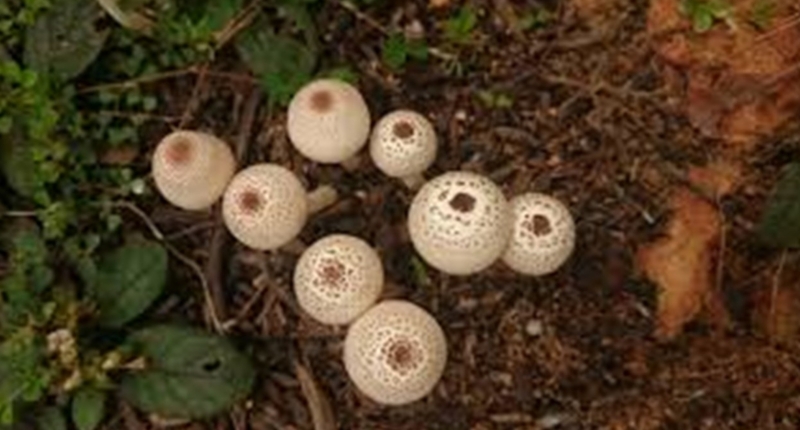In Zimbabwe’s rainy season, wild mushrooms are abundant and provide a source of income and food for rural families. However, the danger of poisonous fungi also increases during this season, with reports of fatalities resulting from mushroom consumption. To prevent such outcomes, indigenous knowledge on the discernment of safe and toxic mushrooms is passed down from mothers to daughters. On average, each family in Zimbabwe makes just over USD 100 a month from selling wild mushrooms, in addition to relying on the fungi for their own household food consumption. Due to harsh weather conditions, about a quarter of Zimbabwe’s 15 million people are food insecure, and the country has one of the world’s highest rates of food inflation at 264 percent, making it challenging for families to access basic necessities. The government is promoting small-scale commercial production of certain types of mushrooms to promote safe mushroom consumption and year-round income generation.
Women in Zimbabwe forage for Wild Mushrooms During Rainy Season
In Zimbabwe’s rainy season, wild mushrooms thrive, providing a source of food and income for rural families. However, the danger of poisonous fungi also increases during this season, with reports of fatalities resulting from mushroom consumption. To prevent such outcomes, indigenous knowledge on the discernment of safe and toxic mushrooms is passed down from mothers to daughters.
Wild mushrooms are rich in protein, fiber, and antioxidants, making them a revered delicacy and income earner in Zimbabwe, where food and formal jobs are scarce. For example, Beauty Waisoni, 46, and her 13-year-old daughter Beverly wake up at dawn, pack plastic buckets, a basket, plates, and a knife before trekking to a forest 15 kilometers away. There, they join other pickers, mainly women working side by side with their children, combing through the morning dew for shoot-ups under trees and dried leaves.
The police routinely warn people of the hazards of consuming wild mushrooms. In January, three girls in one family died after eating poisonous wild mushrooms. To avoid such a fatal outcome, Waisoni teaches her daughter how to identify safe mushrooms.
Women like Waisoni are dominant players in Zimbabwe’s mushroom trade, according to Wonder Ngezimana, an associate professor of horticulture at Marondera University of Agricultural Science and Technology. He notes that women are the predominant gatherers and transfer indigenous knowledge from one generation to the next. They can distinguish edible mushrooms from poisonous ones by breaking and detecting “milk-like liquid oozing out,” and by scrutinizing the color beneath and the top of the mushrooms. They also look for good collection points such as anthills, the areas near certain types of indigenous trees, and decomposing baobab trees.
Research carried out by Ngezimana and colleagues at the university in 2021 shows that about one in four women who forage for wild mushrooms are often accompanied by their daughters, while only 1.4 percent of the time, mothers were accompanied by a boy child. The researchers note that mothers are better knowledgeable of wild edible mushrooms compared to fathers.
Mushroom Collection in Zimbabwe’s Binga District
In Binga, a district in western Zimbabwe, growing Zimbabwe’s staple food, maize, is largely unviable due to droughts and poor land quality. As a result, many families in the area are too poor to afford basic food and other items. Mushroom season, therefore, becomes essential for these families.
The researchers interviewed close to 100 people and observed mushroom collection in Binga, finding that on average, each family made just over USD 100 a month from selling wild mushrooms, in addition to relying on the fungi for their own household food consumption.
Due to harsh weather conditions, about a quarter of Zimbabwe’s 15 million people are food insecure, according to aid agencies. The country also has one of the world’s highest rates of food inflation at 264 percent, according to the International Monetary Fund.
To promote safe mushroom consumption and year-round income generation, the government is promoting small-scale commercial production of certain types such as oyster mushrooms. However, it appears that wild mushrooms remain the most popular among the people.
“They come in as a better delicacy. Even the aroma is totally different from that of the mushroom we do on a commercial aspect, so people love them, and in the process communities make some money,” said Wonder Ngezimana, an associate professor of horticulture at Marondera University of Agricultural Science and Technology.
For Beauty Waisoni, a trader in Harare, wild mushrooms have helped her put her children through school and weather the harsh economic conditions that have battered Zimbabwe for the past two decades. Her pre-dawn trip to the forest marks just the beginning of a day-long process. From the bush, Waisoni heads to a busy highway, where she cleans the mushrooms with a knife and water before joining the stiff competition of other mushroom sellers hoping to attract passing motorists.
Despite the popularity of wild mushrooms, there have been reports of fatalities resulting from mushroom consumption. To ease concerns, Waisoni randomly picks a button from her basket and calmly chews it to reassure potential buyers that it is safe to consume.
In conclusion, wild mushrooms serve as a significant source of income and food for Zimbabwe’s poor rural families, particularly during mushroom season. However, the country’s high rates of food insecurity and food inflation make it challenging for families to access basic necessities, making the commercial production of certain types of mushrooms a welcome alternative.
Don’t miss interesting posts on Famousbio










